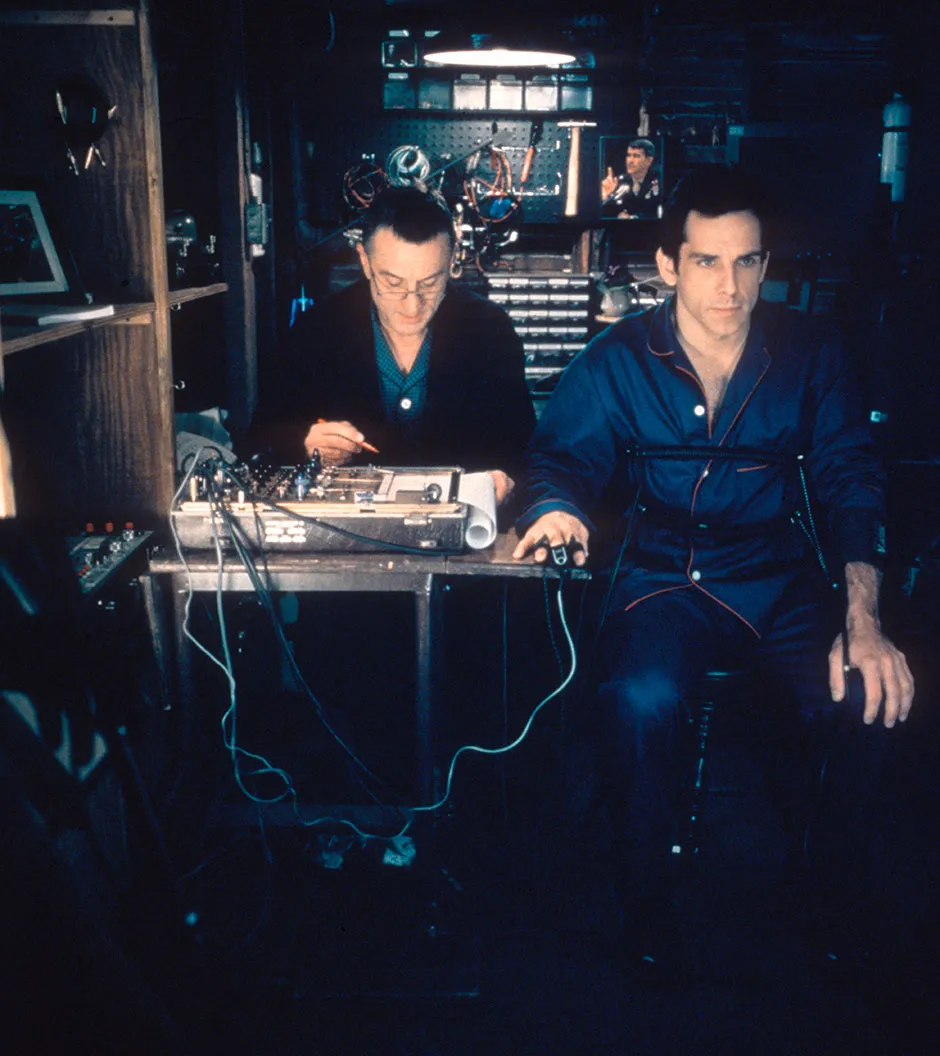Some people don’t think psychology is a serious science. Some of them are actually psychologists, which is disconcerting. On the other hand, you have people assuming that, not only is psychology a genuine science, but a far more powerful and advanced one than is actually the case.
A surprising number of these people live and work in Hollywood. At least, I assume that’s the case, because much of how psychology is presented in film and TV is way off the mark.
Here are seven of the most obvious mistakes made repeatedly about psychology, in the name of entertainment.
1
Depression is a chemical imbalance

This isn’t something limited to Hollywood and celebrities, but they’re very influential when spreading awareness of things regarding mental health, so it’s worth flagging up first.
This ‘chemical imbalance’ view of mental health problems seemingly rests on the assumption that the brain has specific levels of crucial chemicals, namely neurotransmitters, and when it has too little/too much of these chemicals, mental health problems occur.
This view seems to stem from the discovery of how antidepressants work; they raise the levels of important brain chemicals. But psychology and neuroscience has come on a great deal since then. We now know that depression involves over-taxed neurons, inflammation, stress, genetic factors, and more. The altered chemical levels in the brain are likely a consequence of depression, not a result.
So, saying depression and other disorders are due to a ‘chemical imbalance’ is misleading, highly reductive, suggests a simple fix (when there isn’t one), and is tantamount to saying wet carpets are a cause of flooding.
2
We only use 10 per cent of our brains
It’s the premise of films featuring John Travolta and Scarlett Johansson. Nonetheless, it’s the bugbear of neuroscientists and psychologists; the claim that we humans “only use 10 per cent of our brain”. It’s nonsense. It’s apparently based on rudimentary studies from the early 1900s, but has since taken on a life of its own.
It makes no sense. Our brain is an incredibly demanding organ, using 20 per cent of the body’s available resources just to stay alive. From an evolutionary perspective, if we didn’t use all of it, we wouldn’t have it. It’d be a liability, like attaching a one-ton supercomputer to a standard family car.
So, 100 per cent of the human brain is used, and useful. If that logic isn’t convincing enough, then we’ve looked at brains, a lot, via fMRI, and typically see them being used heavily even in the most simple of tasks, like looking at a picture, or using building blocks.
We can’t activate 100 per cent of it all at once, admittedly, but that’s a whole other issue.
3
Eyewitness testimony is completely accurate
Hollywood aren’t the ones who came up with the use of eyewitness testimony; it’s an integral part of most legal systems. However, they’ve often taken the ball and run with it, giving us many variations on stories where the hero has to find and save the one key witness who saw the events that could put the Big Bad in prison, as long as someone can confirm them in court.
Unfortunately, and alarmingly, eyewitness recall of events is seldom 100 per cent accurate. Human memory is messy and convoluted, and can alter, based on stuff that happens after the event. Eyewitness recall can be heavily influenced by emotional strain, or even just having someone tell them they remembered something differently. A great deal of psychological study has been focussed on this phenomenon.
Many bemoan our modern surveillance society, but on the plus side, you can’t confuse a camera about what it saw.
4
Psychologists constantly want to diagnose you
It’s a common trope of sitcoms (most notably, Phoebe’s creepy boyfriend Roger in Friends); if someone’s a psychologist or psychiatrist, then they will be constantly analysing and diagnosing everyone they meet, in ways that are unsettling and disturbing.
There are many things wrong with this. Firstly, psychologists technically can’t diagnose anyone; that’s a psychiatrist’s job. But more importantly, diagnosis is a long, complex and delicate process, which ideally involves learning a lot about someone and what they’re going through, in confidence. Doing it openly, to people who aren’t expecting or asking for it, based on a few fragments of conversation, would be wildly unprofessional.
Also, diagnosis is work for those trained to do it. A psychologist constantly diagnosing people would be like a plumber who can’t leave the taps alone, regardless of where he is.
5
Lie detectors work

Films like Sneakers and Basic Instinct, even Meet the Parents, have pivotal scenes involving polygraphs, aka Lie Detectors. It’s an incredible technological development, a machine that can monitor, recognise and report on all the subtle physiological signs we all give off when we lie.
Incredible is the right word here, because there aren’t any signs like that. Lying is an incredibly complicated cognitive process which differs from person to person. Lie detectors are rarely more reliable than guesswork as a result. That they make for a handy narrative device in fiction is understandable, but it doesn’t make them any less ineffective in reality.
6
A human consciousness could be “uploaded” to a computer
From the evil Professor Arnim Zola of the Marvel Cinematic Universeto numerous episodes of Star Trek and beyond, a common occurrence in mainstream fiction is the uploading of a human mind into a computer of some form.
Maybe some time in the future, this will be feasible. But right now, it isn’t. And it won’t be for some considerable time. Many people use the analogy ‘The brain is like a computer’, but in many crucial ways, it really isn’t.
Even if processor-based hardware had the necessary flexibility and capacity to mimic our neurological systems in ways that made them compatible, which they really don’t, it’s currently impossible to say where a human mind begins and ends, what it’s made up of, how it works, and so on. How you’re meant to isolate it and transfer it to a hard drive is anyone’s guess at present.
7
We can edit human memory
Eternal Sunshine Of The Spotless Mind removed them, Total Recall implanted them. In both cases, and many other in cinema, it seems it’s relatively straightforward to go into the human brain and manipulate out memories.
It’s not, though. It presumably stems from the ‘like a computer’ comparisons again, but the brain doesn’t store memory like files on a hard drive. It’s substantially more complicated. Memories are spread throughout our brain, via the connections between brain cells, and it’s believed the same memory trace can form part of many different recollections.
Thus far, we haven’t been able to pin down a specific memory in the human brain. So the option of isolating them, changing them, and removing them is a very long way off, if it ever happens at all.
If you're looking for more interesting psychology reads, why not check out our roundup of the best psychology books?
